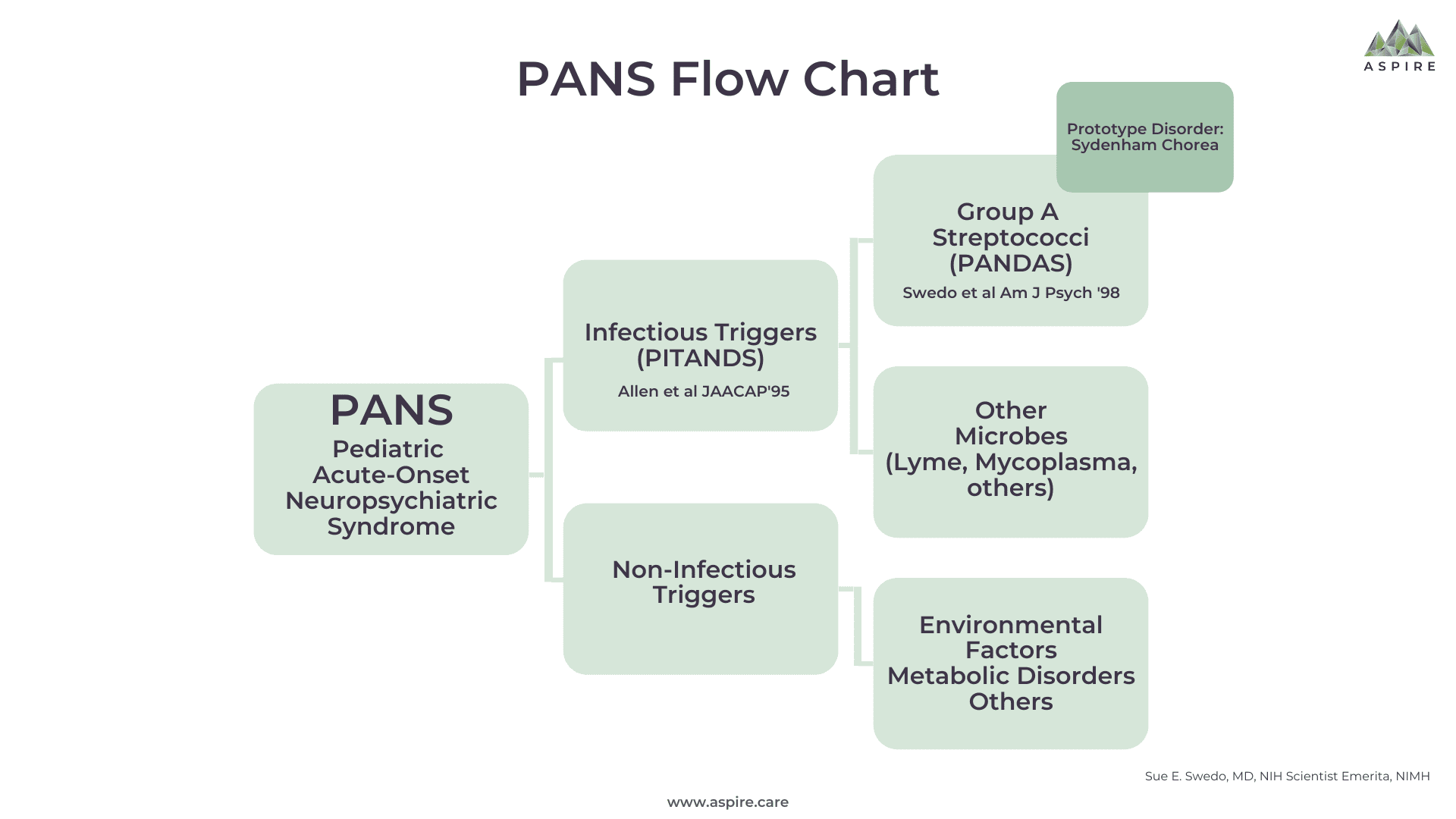Syndrome vs Disorder
PANS is a syndrome, and PANDAS, a subset of PANS, is a disorder.
Pediatric Acute-Onset Neuropsychiatric Syndrome
Pediatric Autoimmune Neuropsychiatric Disorder Associated with Streptococcal infection

Syndrome
A syndrome is a collection of symptoms and signs that occur together in a recognizable manner. In the case of PANS, the syndrome is defined by the abrupt onset of OCD or eating restrictions in conjunction with a constellation of behavioral, emotional, cognitive, and physical symptoms. These symptoms go together in such a way that they could be defined by the PANS Diagnostic Criteria, which emphasize that PANS is recognized not only by the abruptness of symptom onset but also by the multiplicity of areas of dysfunction.
Disorder
When the cause (etiology) and disease mechanism of a syndrome are known, it is more precisely defined as a disorder, with defined approaches to treatment and prevention.
PANDAS is a Disorder
PANDAS is a disorder that has a known etiology, disease mechanism, and approach to treatment. A more modern name for PANDAS is post-streptococcal autoimmune basal ganglia encephalitis which tells us that the etiology was a group A streptococcal infection/exposure; the disease mechanism is neuroinflammation of the basal ganglia, and treatment involves the eradication of the microbial trigger and quenching of the neuroinflammation. While these treatments are appropriate for the PANDAS disorder, they may not be appropriate for the syndrome PANS, as those symptoms could arise from a number of different etiologies with varying disease mechanisms.
PANS is a Syndrome
Simply put — PANS is a large group of patients who have an abrupt onset of neuropsychiatric symptoms, and PANDAS is a smaller subgroup of children whose symptoms are the result of an abnormal immune response to a group a strep infection.
Treatment of PANS and PANDAS
In many cases, it doesn’t matter if the diagnosis is PANS or PANDAS because the primary focus of treatment is the same – relief of the child’s symptoms. The child deserves to feel better as quickly as possible, whether suffering from a “syndrome” or a “disorder.” Thus, for both PANS and PANDAS diagnoses, medications should be prescribed to reduce symptom severity and training in behavioral strategies provided to improve the child’s overall functioning.